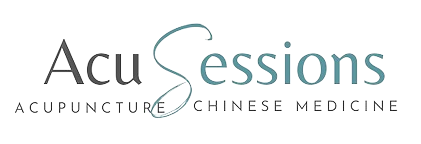Migraines are a major health concern for millions of people around the world. The throbbing pain, sensitivity to light, and nausea can significantly disturb daily life. Luckily, there are a few options to manage and prevent these often recurring migraine issues.
Medications and acupuncture are the most common treatment options for migraines. Which is the right fit for you? Let’s find it out in this acupuncture vs medication comparison.
Understanding Migraines and their treatment options
According to Migraine Canada, migraines affect around 12% of people in Canada. Moreover, women are more likely to suffer from these severe headaches. Migraines may be considered as chronic if they persist for more than 15 days in a month or as episodic if they occur for less than 15 days.
The Most Common Medications for Migraines in Canada
The primary approach for treating migraines that comes to mind for most people is medication. In Canada, individuals frequently explore the following medicinal options to manage migraines.
Pain Relievers
Medications such as aspirin, acetaminophen (Tylenol), naproxen (Naprosyn, Aleve, Anaprox), and ibuprofen (Motrin, Advil) are common painkillers used to help treat mild to moderate migraines. Since these over-the-counter options are readily accessible, they are a frequent go-to for Canadians.
Triptans
Medications specifically designed for treating migraines, known as triptans, are one of the most commonly used drugs for migraine management. Triptans work by narrowing blood vessels in the brain and blocking the release of certain chemicals that contribute to migraine symptoms. They are highly effective in relieving pain, reducing the severity of migraines, and restoring normal functioning. Rizatriptan, Sumatriptan, Almotriptan, Eletriptan, Frovatriptan, Naratriptan, and Zolmitriptan are a few examples of triptans commonly prescribed for migraine treatment.
Preventive medications
Migraine sufferers also have the option to utilize antidepressants, antihistamines, beta-blockers, and certain anticonvulsants to alleviate the intensity and occurrence of migraines. Beta-blockers prevent the dilation of blood vessels in the brain to treat this issue. Nevertheless, it is essential to seek guidance from healthcare professionals before proceeding.
Other Options
Apart from the above medications, it is possible to treat migraines using the following options:
- Supplements like certified PA-free butterbur, coenzyme Q10
- Migraine devices, like Cefaly, Non-invasive vagus nerve stimulator (nVS), Nerivio, etc.
- Nausea drugs for migraine, like promethazine hydrochloride, chlorpromazine, prochlorperazine, etc.
- Calcium channel blockers, like verapamil
- Ergots, like Ergotamine tartrate, Dihydroergotamine.
Pros and Cons of Medication
Medications can give a feeling of instant relief for migraine sufferers. However, it may not be possible to cure migraines permanently with medications. Below are some positive and negative aspects to using migraine medications.
Pros
- Some medications can give quick acting relief against acute migraines.
- Readily available if using over-the-counter medications.
Cons
- It can cause symptoms like Drowsiness, dizziness, nausea, etc.
- Medications can’t treat migraines permanently.
- Require guidance from a seasoned healthcare professional regarding the appropriate dosage.
- It’s not possible to obtain stronger medications without a prescription.
- It can cause rebound headaches, also known as Medication overuse headaches, which can be caused by taking migraine medications for long periods of time.
- Drugs like Triptans may interact with other medications.
- Medication can cause allergic reactions.
- Long-term use can lead to the risk of heart attack, liver damage, and other complications.
A Drug-free Alternative: Acupuncture for Migraines
Acupuncture is a treatment based on Traditional Chinese Medicine that involves needle insertion into certain points in the human body. It is gaining popularity as an alternative treatment for various health issues, including migraines.
How Acupuncture Helps Treat Migraines
According to a study conducted by The Cochrane Collaboration, acupuncture can show similar effects to medications that prevent migraines.
Acupuncture, an ancient Chinese practice, is believed to alleviate migraines by stimulating specific points in the body. By inserting fine needles into these points, acupuncture aims to rebalance the body’s energy flow (Qi) and trigger the release of natural pain-relieving chemicals in the brain.
While ongoing research continues to explore its efficacy, acupuncture shows promise as a complementary therapy for managing migraine symptoms, offering relief for many sufferers.
Pros and Cons of Acupuncture
As a complementary treatment option, acupuncture offers various advantages to migraine patients.
Pros:
- It is a drug-free therapy.
- Acupuncturists can help patients find the root cause of migraines and treat them at the source.
- No or Few adverse effects as compared to drug treatments.
- Can be used in combination with most medications.
- Acupuncture treatments are personalized for each patient.
Cons
- Multiple sessions may be required for better results.
- Though it is well-tolerated, a few people may feel discomfort during treatment.
- Finding the right acupuncturist may be challenging.
Acupuncture vs Medication: Which is the Right Treatment for Migraines
Medication and Acupuncture don’t need to be mutually exclusive. Sometimes, using both acupuncture and medication together can be more effective. An experienced healthcare practitioner can advise you if the combined treatment approach is right for you.
Consulting a Healthcare Professional
The best approach to managing your migraine issues depends on your medical history, daily routine, and individual needs. It is crucial to consult with a healthcare expert, like a licensed acupuncturist or your family doctor, to discuss the right plan for your migraine treatment.
An Acupuncturist can help devise a personalized treatment plan based on your medical history, frequency, and severity of migraines.
Here at AcuSessions, we have a dedicated team of experienced acupuncturists in Toronto. We work in collaboration with other healthcare professionals to ensure a safe and comprehensive treatment approach for your migraine issues.
Ready to Take Control of Your Migraines?
Looking for a natural and efficient way to treat your migraines?
Acupuncture might be a suitable option to consider. Contact AcuSessions- one of the best acupuncture clinics in Toronto today to book a consultation and learn more about how acupuncture can help you relieve migraine pain.


One Comment